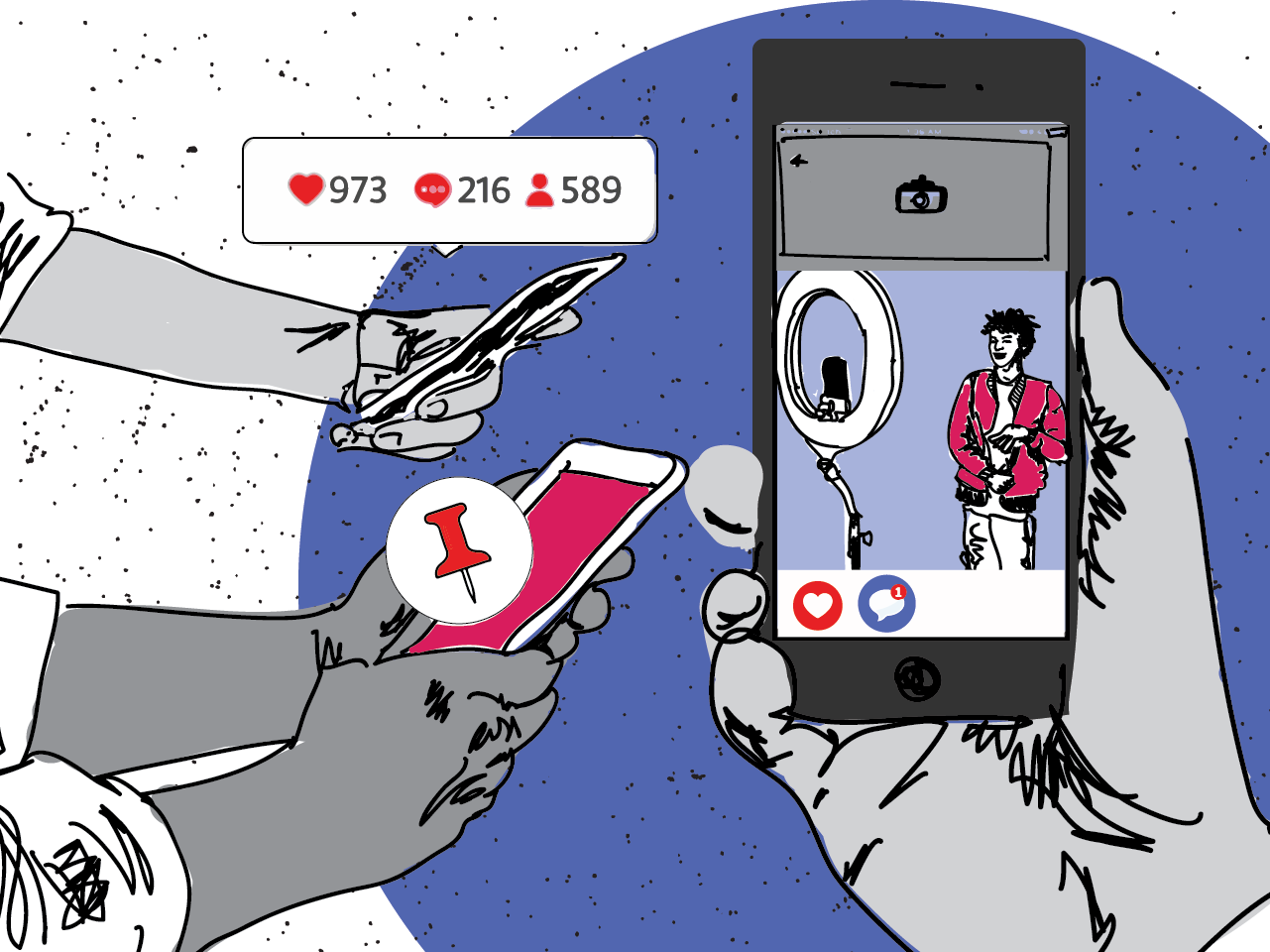O Núcleo conversou com Justin Hendrix sobre as conclusões do Comitê que investigou os ataques ao Capitólio, em 6.jan.2021, nos Estados Unidos e sobre como o Brasil poderia avançar caso decida analisar o papel das redes nos ataques às sedes dos Três Poderes em 8.jan.2023.
- Qual é a principal conclusão de como o Comitê do 6.jan.21 lidou com o papel das plataformas de redes sociais na invasão ao Capitólio?
O Comitê de 6 de janeiro não fez nenhuma conclusão oficial nem emitiu nenhuma recomendação sobre o papel das plataformas de redes sociais na invasão ao Capitólio dos Estados Unidos. O relatório final do Comitê recomendou apenas que tais questões continuem a ser estudadas pelas comissões relevantes do Congresso.
O que sabemos sobre a investigação do Comitê sobre esse assunto, no entanto, está contido em um relatório preliminar que vazou e por meio da transcrição de depoimentos com ex-executivos de mídia social.
Em geral, os documentos apontam para um cenário em que grandes plataformas - incluindo Facebook, Twitter e YouTube - durante anos fizeram concessões às suas próprias políticas para permitir que Donald Trump continuasse a usar suas contas, durante anos acomodaram grupos extremistas e redes relacionadas a teorias da conspiração, como QAnon, e durante anos não investiram adequadamente em recursos humanos e técnicos necessários para aplicar suas próprias políticas de desinformação eleitoral e incitação à violência.
Os repetidos avisos internos no Facebook e no Twitter, em particular, foram rejeitados pelos executivos-sêniores por medo de que qualquer ação pudesse ser vista como traição a uma tendência contra os republicanos.

2. Em 17.jan, o Washington Post publicou uma reportagem citando fontes anônimas que disseram que o Comitê não examinou essas empresas em seu relatório final devido ao medo de "ofender os republicanos ou as empresas de tecnologia". Olhando para o futuro, como isso afeta as perspectivas para qualquer tipo de regulamentação de tecnologia nos Estados Unidos?
Embora os principais partidos concordem que as empresas de tecnologia nos Estados Unidos precisam de regulamentação, eles discordam sobre o porquê disso ser necessário.
Enquanto os democratas tendem a se concentrar em questões relacionadas a danos online, os republicanos estão preocupados com a possível censura e práticas de moderação de conteúdo que enxergam como contrárias aos seus próprios interesses.
Pairando sobre tudo isso está a realidade de que as empresas de tecnologia gastam muitos milhões em lobby no Congresso e em doações para as campanhas de políticos de ambos os partidos. A agenda regulatória no Capitólio dos EUA é capturada pela indústria, e é por isso que estamos vendo mais atividades nos estados e em litígios do que no Congresso.
3. O relatório final do Comitê (o oficial de dezembro) mencionou apenas brevemente a responsabilidade dessas empresas de tecnologia. Mais de uma vez o Comitê solicitou informações às empresas (inclusive na forma de intimações após elas não terem respondido às questões iniciais). Sabemos o que (se houver algo) que poderia ser aprendido com as respostas fornecidas pelas empresas?
O relatório e os depoimentos transcritos sugerem que as principais empresas de mídia social foram receptivas ao Comitê, fornecendo documentos internos e disponibilizando executivos para entrevistas.
Algumas das plataformas menores e periféricas, como The Donald [um antigo subreddit que foi removido pelo Reddit e agora opera em domínio próprio] e Parler, também forneceram informações ao Comitê - por exemplo, há referência a relatórios de moderação no The Donald.
Um membro da equipe de investigação me disse que a abordagem das empresas para produzir informações variava muito; algumas foram muito precisas no que decidiram enviar, enquanto outras enviaram uma avalanche de informações, muitas delas estranhas. Há poucas evidências de que os executivos-sêniores das principais plataformas tenham falado diretamente com o comitê.
4. Recentemente, o Brasil também viu extremistas de direita invadirem os prédios de suas instituições democráticas. Alguns legisladores solicitaram a abertura de uma investigação para investigar os eventos de 8.jan.23 e o papel da mídia social pode ser um tópico. Quais são algumas lições que podem ser aprendidas com o Comitê de 6.jan.21 em relação às empresas de tecnologia? O que o Brasil poderia fazer de diferente?
Qualquer investigação no Brasil que possa se basear nos esforços do Comitê do 6.jan.21 para entender as maneiras pelas quais as plataformas de mídia social ajudaram a propagar falsas alegações que inspiraram a violência em Brasília em 8.jan.23, ou as maneiras pelas quais os eventos daquele dia foram organizados e coordenados em plataformas sociais, seria valiosa.
As questões-chave podem incluir como o uso de grupos e o tamanho e como recursos de determinados aplicativos de mensagens em grupo foram usados. E seria valioso saber até que ponto as plataformas falharam em impor suas próprias políticas nas semanas anteriores a 8.jan.23.
Também é importante olhar para a relação entre influenciadores políticos e políticas relacionadas a eles, bem como o papel de jornalistas e outros influenciadores, incluindo alguns baseados nos EUA que usaram plataformas de redes sociais aqui para produzir teorias da conspiração que repercutiram no Brasil e de volta para cá.
Assim como nos EUA, o Brasil terá que pensar profundamente sobre a saúde de seu ambiente de mídia e informação, mesmo enquanto lida com as forças políticas e sociais subjacentes que levaram à violência em 8.jan.23.
Leia a entrevista em inglês aqui:
- What is the takeaway of how the January 6th Committee handled the role of social media platforms in the Capitol insurrection?
The January 6th Committee ultimately made no official conclusion nor issued any recommendations regarding the role of social media platforms in the insurrection at the U.S. Capitol. The final report of the Committee recommended only that such issues continue to be studied by relevant Congressional committees. What we know about the January 6th Committee's investigation into this issue, however, is contained both in a draft report that was leaked, and via transcribed depositions with former social media executives. In general, the documents paint a picture of major platforms- including Facebook, Twitter and YouTube- that had for years made concessions to their own policies to allow Donald Trump to continue to utilize his accounts, had for years accommodated extremist groups and networks related to conspiracy theories such as QAnon, and had for years failed to appropriately invest in the human and technical resources necessary to apply their own policies on election disinformation and incitement to violence. Repeated internal warnings at Facebook and Twitter, in particular, were dismissed by senior executives out of fear that any actions might be seen as betraying a bias against Republicans.
2. The Washington Post story published on January 17th quoted anonymous sources who said the Committee failed to scrutinize these companies in their final report due to fear of "offending Republicans or the tech companies". Looking forward, how does this impact the outlook for any type of tech regulation in the United States?
While the major parties both agree that technology firms in the United States are in need of regulation, they disagree about why it is necessary. While Democrats tend to focus on issues related to online harms, Republicans are concerned about potential censorship and content moderation practices that they regard as counter to their own interests. Looming over it all is the reality that tech firms spend many millions on lobbying Congress and on donations to the campaigns of politicians in both parties. The regulatory agenda in the U.S. Capitol is captured by industry, which is why we are seeing more activity in states and in litigation than we are in Congress.
3. The final report (the official December one) only briefly mentioned the responsibility of these tech companies. More than once the Committee requested information from the companies (including in the form of subpoenas after they failed to address initial questions). Do we know what (if anything) could be learnt from the responses the companies provided?
The report and the transcribed depositions do suggest that the major social media firms were responsive to the Committee, providing internal documents and making executives available for interviews. Some of the smaller, fringe platforms such as The Donald and Parler also provided information to the Committee- for instance, there is reference to moderation logs on The Donald. One member of the investigative team told me that the approach the companies took to producing information varied greatly; some were very precise in what they chose to send, while some sent an avalanche of information, much of it extraneous. There is little evidence that senior executives at the major platforms spoke directly to the committee.
4. Recently, Brazil also saw far-right extremists storming into the buildings of its democratic institutions. Some lawmakers have put in requests to open a probe to investigate the Jan. 8th events and the role of social media might be a topic. What are some lessons that can be learnt from the Jan. 6th Committee regarding tech companies? What could Brazil do differently?
Any investigation in Brazil that could build on the efforts of the January 6th Committee to understand the ways in which social media platforms helped to propagate false claims that inspired the violence in Brasilia on January 8th, or the ways in which the events that day were organized and coordinated on social platforms, would be valuable. Key questions might include how the use of groups, and the size and affordances of certain group messaging applications, were used. And, it would be valuable to know the extent to which the platforms failed to enforce their own policies in the weeks leading up to January 8th. It is also important to look at the relationship between political influencers and policies related to them, as well as the role of journalists and other influencers, including some based in the U.S. who used social media platforms here to produce conspiracy theories that reverberated to Brazil and back. Just as in the U.S., Brazil will have to think deeply about the health of its media and information environment, even as it grapples with the underlying political and social forces that led to the violence on January 8th.








